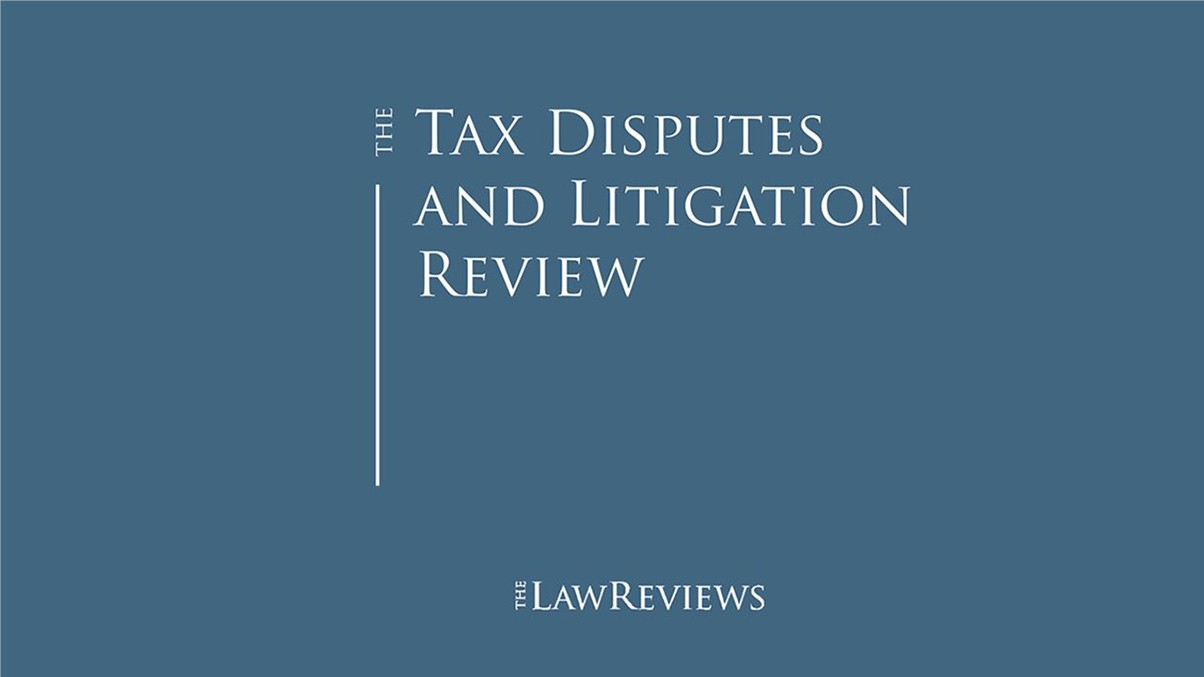Lee Ellis, Victor Cramer, David Pickstone and Cristiana Bulbuc have drafted the United Kingdom chapter of the Ninth Edition of the Tax Disputes and Litigation Review, recently published by The Law Reviews. The book gives information on tax disputes across 22 jurisdictions.
Below is the section of the chapter on tax claims. The introduction can be found here.
Recovering overpaid tax
The most common causes of output VAT overpayments are simple error, or decisions from the courts and tribunals that overturn a previously accepted tax treatment. Claims for overpaid output VAT must be made within four years of the end of the relevant tax return.
Claims for the recovery of under-recovered input VAT must be made within a period of four years from the date on which the return was made (Regulations 29 and 34, VAT Regulations 1995 (SI 1995/2518)).
The most prominent source of tax overpayments for other taxes has arisen from decisions of the Court of Justice of the European Union (CJEU) that domestic legislation was incompatible with a taxpayer’s EU rights, and that a tax levy was therefore not due. (See, e.g., Joined cases C-397/98 and C-410/98 Metallgesellschaft Ltd v. IRC; Hoechst AG v. IRC ECR I-1727; case C-446/03 Marks & Spencer Plc v. Halsey (Inspector of Taxes) [2005] ECR I-10837; case C-196/04 Cadbury Schweppes [2006] ECR I-07995; case C-35/11 Test Claimants in the FII Group Litigation; case C-362/12 Test Claimants in the FII Group Litigation; case C-80/12 Felixstowe Dock and Railway Company Ltd and Others v. HMRC; Prudential Assurance Co ltd v. Revenue and Customs Commissioners [2018] UKSC 39). Similar issues can arise under double tax treaties. (See Section IX. See, also, e.g., Revenue and Customs Commissioners v. UBS AG [2007] EWCA Civ 119, [2007] STC 588; NEC Semi-Conductors Ltd v. Inland Revenue Commissioners [2007] UKHL 25, [2007] STC 1265; Commissioners for Her Majesty’s Revenue and Customs v. FCE Bank plc [2012] EWCA Civ 1290, [2012] STC 462; Percival v. Revenue and Customs Commissioners [2013] UKFTT 240 (TC)).
Taxpayers have a right to adjust returns for direct taxes within 12 months of the date of submission of the return. Where this period has expired, (Schedule 18, Paragraph 15(4), FA 1998 for companies and Section 9ZA (2), TMA 1970 for individuals) there are a number of other remedies that can be considered.
First, the High Court retains an inherent jurisdiction to hear claims in damages and restitution unless implicitly or explicitly excluded by statute. (Autologic Plc v. IRC [2005] UKHL 54, [2006] 1 AC 118; Monro v. Revenue and Customs Comrs [2009] Ch 69; Test Claimants in the FII Group Litigation v. Commissioners of Inland Revenue [2012] UKSC 19, [2012] 2 AC 337; Prudential Assurance Co Ltd v. Revenue and Customs Commissioners [2018] UKSC 39). While the High Court has such an inherent jurisdiction, access to restitution claims in respect of taxation matters has been significantly curtailed by both legislation and by recent case law. The UK courts have not generally been in favour of allowing taxpayers to avoid statutory deadlines by way of restitution claims.
A simpler route arises under Paragraph 51A of Schedule 18 to the Finance Act 1998 (Paragraph 51A). This allows for the recovery of overpaid corporation tax, subject to a limitation period of four years after the end of the relevant accounting period. There are similar provisions for income tax (Schedule 1AB, TMA 1970). It is also subject to a defence that the mistake must not have been in accordance with ‘practice generally prevailing at the time’. However, as of 14 January 2014, this defence cannot apply where the claim seeks to enforce EU rights (Sections 231 and 232, FA 2013 introducing Paragraph 51(9) and (10) of Schedule 18, FA 1998; Revenue & Customs Brief 22/10; Monro v. Revenue and Customs Comrs [2009] Ch 69). HMRC will generally seek to rely on this defence where possible.
HMRC charges interest on underpayments of tax, and pay interest on overpayments of tax. However, the rates paid to HMRC are significantly higher than the rates paid to the taxpayer. Interest is generally paid on a simple basis.
The Supreme Court in Littlewoods (Littlewoods Retail Ltd v. Revenue and Customs Commissioners [2017] UKSC 70) considered whether simple interest amounted to an adequate remedy in the context of VAT, and concluded that it was.
In Prudential (Prudential Assurance Co Ltd v. HMRC [2018] UKSC 39) the Supreme Court reached a similar conclusion for direct taxes.
Challenging administrative decisions
As well as challenging the basis on which HMRC decisions are made, taxpayers may also challenge the way they are made, including their fairness, through judicial review. (Simon’s Taxes A5.702; R (on the application of Premier Foods (Holdings) Ltd)) v. Revenue and Customs Commissioners [2015] EWHC 1483 (Admin), [2015] STC 2384). This arises, for example, where HMRC changes its view about the tax implications of a given set of circumstances, but it can also arise where a taxpayer considers HMRC has made a decision that is contrary to their statutory powers, for example, a breach of EU law or human rights law. The absolute deadline for a judicial review application is three months from the decision being challenged; however, the application must be made ‘promptly’, and the courts have no tolerance for delay (CPR 54.5(1)). Judicial review is a remedy of last resort, and is usually only successful in cases of conspicuous unfairness where no other remedy is available.
Applications must be made to the High Court, although the High Court may choose to transfer cases to the Upper Tribunal (Simon’s Taxes, A5.702).
Claimants
For both direct and indirect taxes, claims for the recovery of overpaid tax can only be made by the person who paid the tax, although it is possible in some limited circumstances for the right to be assigned (primarily in VAT cases).
There have been attempts to argue that the end payer of a VAT charge bring a claim in restitution against HMRC to recover overpaid VAT. However, the most recent of these was unsuccessful at the level of the Supreme Court (See Investment Trust Companies (in liquidation) v. Commissioners for HMRC [2017] UKSC 29). It remains theoretically possible for endusers to bring claims against HMRC where it has become impossible to recover from a supplier; though such claims would be difficult.
While claims for overpaid VAT can only be made by the taxpayer, it is possible for third parties to appeal the rejection of such a claim where they have an economic interest in the outcome. This can be useful where a supplier is unwilling to challenge HMRC, as it will allow a customer to obtain clarification about a VAT position.
The full UK chapter of the Tax Disputes and Litigation Review Ninth Edition, can be accessed here.
The Tax Disputes and Litigation Review Ninth Edition, can be accessed in full here.
Reproduced with permission from Law Business Research Ltd
This article was first published in March 2021
For further information please contact Nick Barette
© 2021
You can find further information regarding our expertise, experience and team on our Tax Litigation and Investigations pages.
If you require assistance from our team, please contact us or request a call back from one of our lawyers by submitting this form.
Subscribe – In order to receive our news straight to your inbox, subscribe here. Our newsletters are sent no more than once a month.





